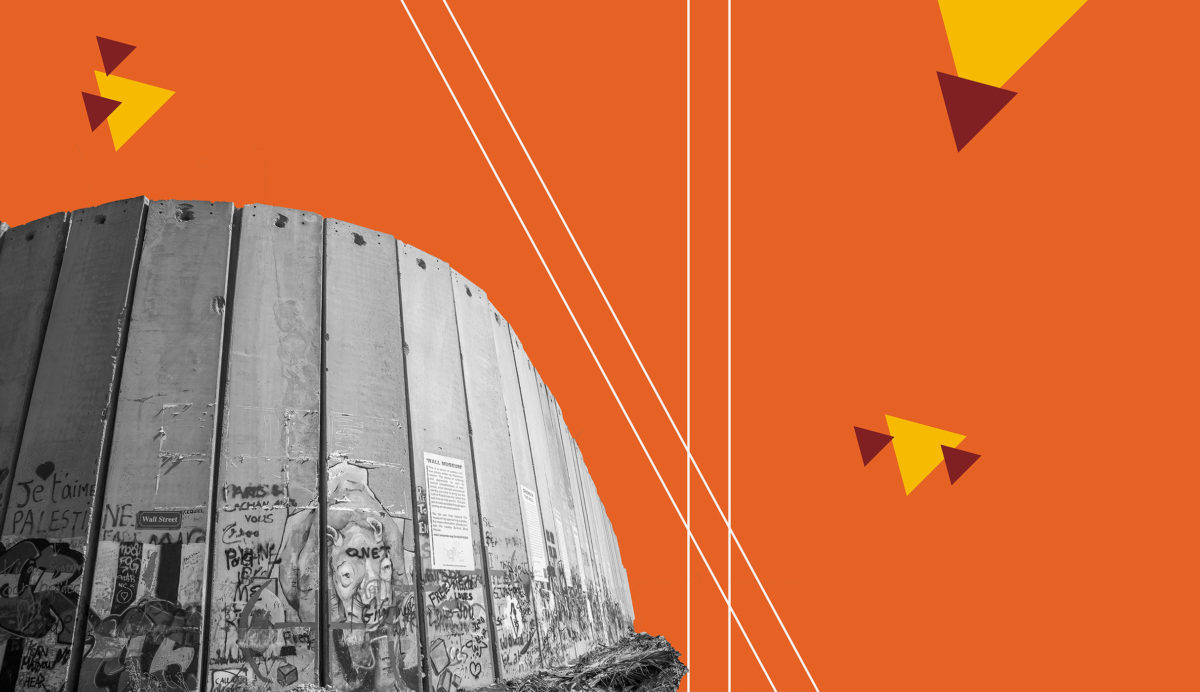Elise Reslinger is a PhD Student in the Department of Social & Policy Sciences at the University of Bath. Her research focuses on migration and childhood studies, and between 2010 and 2016 she served as an aid worker in the occupied Palestinian territory.
On 8 November, Priti Patel resigned from her position as UK Secretary of State for International Development. This resignation followed the revelation, three months after the fact, of unauthorised meetings with Israeli officials including the Prime Minister, Benjamin Netanyahu. Protocol requires these meetings to be authorised to ensure their compliance with UK foreign affairs priorities, and for a risk assessment to be undertaken. Following these meetings, Patel asked her team to investigate the possibility of funding the Israeli army’s field hospitals based in the Golan Heights – a territory toward which the UK Government, in keeping with UN Resolution 497, rejects Israel’s claim of sovereignty. Officially, the UK views the Golan Heights as illegally occupied Syrian land. What happened has been commented on heavily since in the media and among government circles; such conversations have raised the implications of this breach of protocol for UK politics, the question of a tacit acceptance on the part of the UK for Patel to meet the various interlocutors, subsequent questions about collusion between the UK and Israeli governments and concerns about a lack of accountability to British taxpayers[1]. I would like to consider the Patel case from the perspective of a former aid worker in the occupied Palestinian territory. My main focus is how this case affects existing aid beneficiaries, in this case Palestinians, and what the impact of this public lack of impartiality and neutrality on humanitarian aid and aid workers will be.
While there is no universal definition of the humanitarian principles of impartiality and neutrality, there is a consensus around impartiality – defined as the delivery of aid on the basis of need alone, without discrimination; neutrality implies that humanitarian workers should not be associated with any of the parties in conflict. That is to say, those who are delivering aid should not choose sides in a conflict. Humanitarian workers and agencies who work in the occupied Palestinian territory and are funded by international aid donors like DfID are required to adhere to these principles. This approach is applied by humanitarian agencies as a “tool”, a “stance” to enable them to operate with a local population’s trust. Patel was considering giving aid to subsidise the activities of the Israeli Army on illegally occupied Syrian land and “presenting this as humanitarian”. An army known best in the region for its flagrant violations of international law and human rights abuses against Palestinians, and for enforcing a system of rule referred to increasingly as Apartheid[2].
The hidden agenda of Priti Patel, and possibly the UK government as a whole, is illustrated by DfID’s recent approach to the Palestinians. It reveals a clear lack of impartiality in funding allocations. 2017 marks the 50th year of occupation and settler colonisation of Palestinian territory, including East Jerusalem. This year Gaza was once again described as being in a situation of “de-development” by the UN[3], yet Priti Patel’s department scrutinised every pound allocated to the Palestinians[4], while considering giving financial support to the already well-funded army of occupation (which receives US$3.1 billion per annum in aid from the United States[5]) responsible for countless human rights violations of those Palestinians over decades[6]. Hence, the Patel incident creates the impression that funding is not allocated only on the basis of need.
Concerning the stance of neutrality, the Patel case only encourages the defiance already present in both Israeli and Palestinian civil societies, as demonstrated by the mechanisms they are creating to act as a watchdog on foreign aid[7]. This defiance complicates the work of aid agencies that receive funding from international donors. The efficiency of humanitarian aid relies on the population’s trust that every care is taken not to harm them and to improve their situation; when this relationship is tarnished, work is increasingly difficult – including assessing need or implementing activities in a participatory manner. While acknowledging the lack of impartiality and neutrality as well as the connivance between UK and Israeli interests, how are humanitarian actors supposed to continue operating within this paradigm in the occupied Palestinian territory?
The consequences of a government prioritising its political agenda over a population’s humanitarian needs in a crisis situation are numerous. Aid workers are likely to lose access to populations in need, as they are associated with this collusion of interests – and their work and legitimacy are consequently called into question. The Patel case also reminds us that “everything is political” with the current prevailing aid paradigm in the occupied Palestinian territory[8]. In recent years, aid delivery in the occupied Palestinian territory has been framed by the 1993 Oslo Accord and 1994 Paris Protocol, and while aid budgets have increased over this period, the humanitarian situation in the occupied Palestinian territory has steadily worsened[9]. The Patel case also demonstrates the absence of accountability for beneficiaries: Patel was not forced to resign because of her efforts to divert aid away from those in dire need towards a well-funded army of occupation. Instead, the single reason for her departure was public exposure. Meanwhile, her work at the helm of DfID was praised lavishly in Prime Minister May’s response to her resignation letter. The accountability of aid donors and most humanitarian agencies to beneficiaries is practically non-existent. As long as principles for accountability, neutrality and impartiality are framed within this aid-specific paradigm, without acknowledging the context of the power structures at work in the conflict, humanitarian aid will continue to relieve Israel of many of its costs as the occupying power while failing to support, in a meaningful way, the Palestinian population[10].
Conclusion
The Patel case is illustrative of a dynamic around aid in the Israel/occupied Palestinian territory context that is well-established, where the pursuit of government agendas consistently takes precedence over humanitarian principles. As a former humanitarian worker in the OPT, I believe that two questions need to be answered by aid agencies operating there as a matter of urgency. First, can they continue to operate ethically and effectively within an environment for humanitarian assistance imposed by Israel and foreign aid agencies – and, if so, how? And secondly, how can we make actors genuine accountability to the populations that the funds are supposed to serve? If these two considerations are not tackled, we can expect the situation for Palestinians to continue to worsen. Aid should be allocated and utilised with the aim of addressing not just immediate needs, but underlying causes of suffering. Otherwise, it will exacerbate rather than mitigate the crisis.
References
[1] David Miller (10/11/2017) Leaving by the back door: Priti Patel and the crisis of corruption. UoB IPR blog https://blogs.bath.ac.uk/iprblog/2017/11/10/leaving-by-the-back-door-priti-patel-and-the-crisis-of-corruption/
Jonathan Cook (12/10/2017) What the Priti Patel scandal tells us about the dark operations of the UK’s powerful Israel lobby https://www.thenational.ae/opinion/comment/what-the-priti-patel-scandal-tells-us-about-the-dark-operations-of-the-uk-s-powerful-israel-lobby-1.675000
Ryvka Banard (10/11/2017) Priti Patel’s Israel scandal: The tip of the iceberg, Middle East Eye http://www.middleeasteye.net/columns/priti-patel-s-israel-scandal-tip-iceberg-109440378
[2] Ben White (21/11/2017) Exclusive: Amnesty pledges to consider if Israel is committing apartheid https://benwhite.org.uk/2017/11/21/exclusive-amnesty-pledges-to-consider-if-israel-is-committing-apartheid/
[3] United Nations Conference on Trade and Development (UNCTAD)(12/09/2017) UNCTAD Assistance to the Palestinian people: developments in the economy of the occupied Palestinian territory.
http://unctad.org/en/PublicationsLibrary/tdb64d4_embargoed_en.pdf
[4] For more details on the various budget cut from the Palestinian Authority budget but also NGO like World Vision please refers to: Ben White (11/11/2017), The untold story: why Priti Patel’s departure is “a great loss for Israel” https://www.middleeastmonitor.com/20171111-the-untold-story-why-priti-patels-departure-is-a-great-loss-for-israel/#.WgjPopg4xKw.facebook
[5] USAID: https://explorer.usaid.gov/cd/ISR
[6] one of the most emblematic example being the Annual report of the Secretary-General on Children and Armed Conflict
(cf. para. 79- 111): http://www.un.org/ga/search/view_doc.asp?symbol=A/69/926&Lang=E&Area=UNDOC
[7] e.g. Aid Monitor (Israel) https://www.ngo-monitor.org/, Aid Watch Palestine http://www.aidwatch.ps/
[8] Joan Deas, Elise Reslinger (November 2017), Humanitarian aid in Palestine: reconsidering neutrality through child protection
[9] https://www.ochaopt.org/sites/default/files/humanitarian_needs_overview.pdf
[10] Jeremy Wildeman, Alaa Tartir, (19/09/2013) Can Oslo’s Failed Aid Model Be Laid to Rest? Al Shabaka ; Jeremy Wildeman, Alaa Tartir (2014): Unwilling to Change, Determined to Fail: Donor Aid in Occupied Palestine in the aftermath of the Arab Uprisings, Mediterranean Politics, http://dx.doi.org/10.1080/13629395.2014.967014
Joan Deas, Elise Reslinger (November 2017), Humanitarian aid in Palestine: reconsidering neutrality through child protection
Respond




